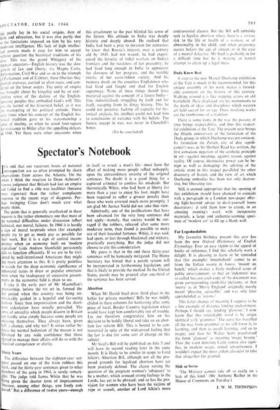Thirty Years
The difference between the eighteen-year sen- 4Ence passed on one of the train robbers this 'members and the thirty-year sentences given to other of the gang in 1964, is surely remark- „able. The judge told James White that he was being given the shorter term of imprisonment necause, among other things, you freely con- fessed.' But a difference of twelve years—enough
in itself to wreck a man's life—must have the effect of making more people reflect unhappily upon the extraordinary severity of the original sentences. No doubt it is a good thing for a captured criminal to confess his misdeeds. But theoretically White, who had been at liberty for more than a year to enjoy his loot, might have been required to suffer a greater penalty than those who were arrested much more promptly. I am glad Mr Justice Nield did not take that view.
Admittedly, one of the justifications that have been advanced for the very long sentences did not apply—namely, that society would be out- raged if the robbers, released after some more moderate term, then found it possible to make use of their hoarded fortunes. White, it was said, had spent, or lost through blackmail and trickery, practically everything. But the judge did not choose to cite this consideration.
My guess is that in the end these thirty-year sentences will be humanely mitigated. The Home Secretary has hinted that a parole system will be incorporated in forthcoming legislation, and that is likely to provide the method. In the United States, parole may be granted after one-third of the sentence has been served.














































 Previous page
Previous page